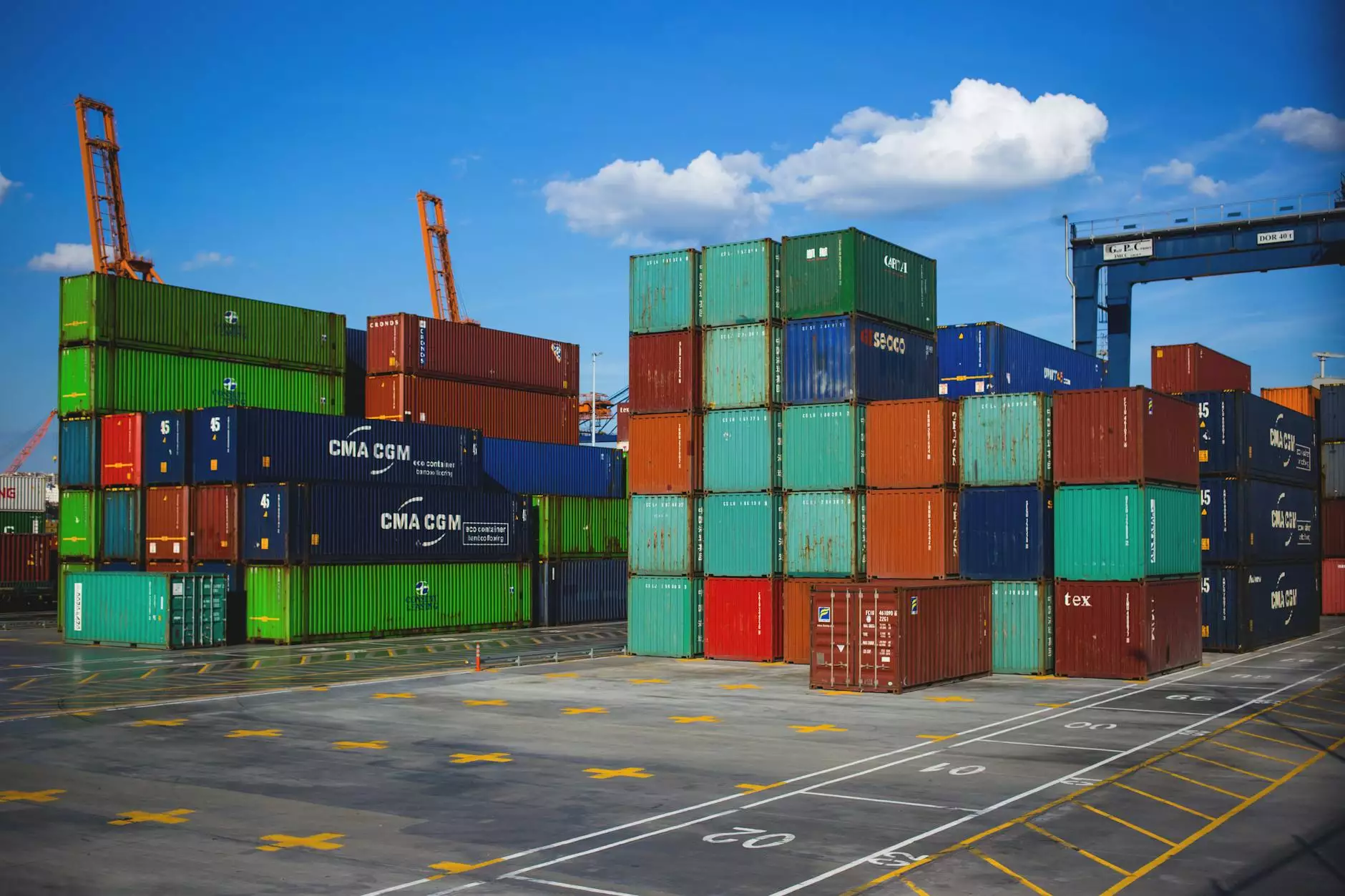Understanding LTL Freight: Essential Insights for Businesses

In an ever-evolving business landscape, logistics plays a pivotal role in determining a company's success. One crucial aspect of logistics is Less Than Truckload (LTL) freight shipping. This article explores the fundamentals of LTL freight, its benefits, and how to obtain a reliable quote ltl freight for your shipping needs. Read on to discover how LTL shipping can enhance your business operations.
What is LTL Freight?
LTL freight shipping refers to the transportation of relatively small cargo that does not require an entire truck's worth of space. Companies usually choose LTL freight for shipments weighing between 150 and 15,000 pounds. This option is particularly advantageous for businesses that need to send smaller pallets of goods without incurring the high costs associated with full truckload shipping.
The Benefits of LTL Freight Shipping
Understanding the benefits of LTL freight can help your business make informed logistical decisions. Here are some key advantages:
- Cost Efficiency: By sharing truck space with other shippers, companies can save significantly on shipping costs compared to booking an entire truck.
- Flexibility: LTL freight allows businesses to ship smaller volumes more frequently, which can lead to more manageable inventory levels.
- Environmental Impact: Sharing cargo space reduces the total number of trucks on the road, contributing to lower emissions and a smaller carbon footprint.
- Tracking and Reliability: Most LTL carriers offer tracking services, providing real-time updates on the status of your shipment.
How LTL Freight Works
To better understand LTL freight, it’s essential to grasp how the process unfolds:
- Booking a Shipment: You first contact a freight carrier to book your shipment. Make sure to discuss the nature of your cargo and requirements.
- Palletization: Properly palletizing your goods is crucial. This not only helps in safe handling but also allows for easier loading and unloading.
- Freight Class Determination: The LTL shipping industry uses a classification system to assign a freight class to your goods based on their density, stowability, handling, and liability. Accurate classification is critical in calculating shipping costs.
- Pickup and Transportation: Once your shipment is ready, the carrier picks it up. The goods are then transported to a hub where they may be consolidated with other shipments, depending on their destination.
- Delivery: Finally, the goods are delivered to the specified location. You can often track the shipment throughout the entire process.
Factors That Influence LTL Freight Costs
When seeking a quote ltl freight, several factors come into play that can influence the overall cost:
- Distance: The longer the shipment needs to travel, the higher the cost.
- Weight and Size: Heavier and larger shipments generally incur higher fees due to the space they occupy in the truck.
- Freight Class: Each class is assigned a different rate based on the nature of the cargo. Understanding your freight class can help in obtaining accurate quotes.
- Accessorial Charges: Additional services such as liftgate service, inside delivery, or residential pickups can add to the overall charge.
- Fuel Costs: Fluctuations in fuel prices directly affect shipping rates, as carriers often pass increased costs onto the customer.
How to Get the Best Quote for LTL Freight
Finding the best quote for LTL freight shipping requires a strategic approach. Here are some steps to consider:
- Compare Multiple Carriers: Always seek quotes from several freight carriers to compare rates and services offered. This can help you find the most competitive pricing.
- Provide Accurate Information: Ensure you provide detailed and accurate information about your shipment. This includes dimensions, weight, destination, and any special handling requirements.
- Use Online Quoting Tools: Many logistics companies offer online tools that simplify the quoting process. Utilize these to get instant quotes and compare prices.
- Inquire About Discounts: Ask carriers if they offer discounts for frequent shipping or special pricing for businesses to help reduce costs.
- Negotiate Rates: There’s often flexibility in pricing, especially for businesses that ship often. Don’t hesitate to negotiate with carriers for better rates.
Best Practices for LTL Shipping
Adopting best practices can streamline your LTL shipping process and minimize costs:
- Consolidate Shipments: Whenever possible, gather shipments that are going to the same area to consolidate them into one LTL shipment.
- Palletize Effectively: Ensuring your goods are well-palletized not only protects them but also leads to better rates due to accurate class assignments.
- Maintain Open Communication: Maintain effective communication with your freight carrier regarding pickup and delivery times to avoid delays.
- Review Shipment Regularly: Consistently review quotes, performance, and delivery times to evaluate whether your current provider is meeting your needs.
Common Misconceptions About LTL Freight
Understanding LTL freight can be complicated, leading to some common misconceptions:
- It’s Always Cheaper: While LTL can be more affordable than full truckloads, this isn’t a hard and fast rule and varies based on the shipment specifics.
- It’s Slow: Although LTL shipping can take longer than a direct truckload delivery, many carriers have improved transit times significantly.
- You Can’t Track LTL Shipments: This is incorrect; most carriers provide comprehensive tracking solutions for LTL freight.
The Future of LTL Freight Shipping
The LTL freight industry is rapidly evolving. Advances in technology and logistics management are transforming how shipments are handled:
- Digital Freight Matching: Platforms are emerging that match shippers with carriers more efficiently, enhancing cost-effectiveness.
- Artificial Intelligence (AI): AI tools are being utilized to optimize routes and predict delivery windows, leading to improved efficiency.
- Sustainability Efforts: Many logistics companies are focusing on sustainable practices, including green shipping initiatives and reducing carbon footprints.
Conclusion
In conclusion, LTL freight shipping provides numerous advantages for businesses seeking cost-effective and flexible shipping solutions. By understanding the fundamentals of LTL freight, including costs, procedures, and best practices, you can optimize your business logistics. When you need to obtain a precise and competitive quote ltl freight, consider visiting FreightRate.com for comprehensive support and guidance tailored to your shipping needs. Efficient logistics management not only enhances operational capacity but also contributes to long-term success in the marketplace.



